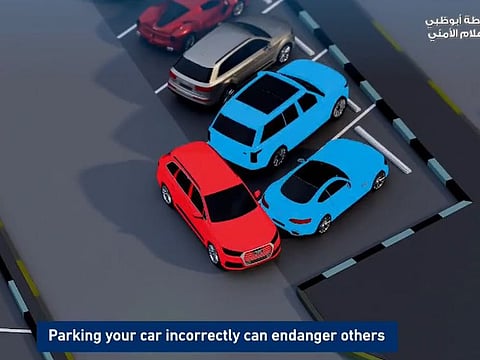Ramadan 2022 in UAE: Avoid wrong parking in front of mosques
Speeding for Iftar, Taraweeh prayers leads to fatal accidents, police warn

Dubai: The month of Ramadan brings with it a change in not just people’s dietary patterns but also their daily schedule. Fasting from dawn to dusk affects your sugar levels and can impact focus and attention while driving, and the additional night prayers during Ramadan lead to a larger number of people – and cars – at mosques, especially during the Taraweeh prayer.
To help motorists stay safe during the month of Ramadan, police authorities across the UAE have been raising awareness on the need to exercise care and practise courtesy while driving.
Here is a look at the biggest driving challenges you face while driving, and how you can stay safe.
Wrong parking in front of mosques
On April 17, Abu Dhabi Police took to its social media channels to educate motorists on the need to park with care and consideration, especially in front of mosques during Taraweeh prayers, as wrong parking practices can hinder traffic and people’s movements.
“Don’t park your vehicle on the sidewalk and encroach on pedestrian areas. The road belongs to everyone, so avoid stopping halfway and blocking entrances.
“Don’t waste other people’s time and block their movement by stopping behind their vehicles. Parking your car incorrectly can endanger others, especially in urgent [situations] and health emergencies. Follow these rules to protect yourself and others,” the post read.
https://twitter.com/ADPoliceHQ/status/1515692001689284613
Common driving mistakes
On April 18, Ras Al Khaimah Police issued a statement on how more than half of the traffic accidents that occur during Ramadan in Ras Al Khaimah take place before sunset and iftar time, as a result of excessive speeding and non-compliance with rules.
To educate motorists, Ras Al Khaimah Police provided a list of the most common mistakes drivers make. These include:
1. Speeding, especially before Iftar time
2. [Lack of focus because of] exhaustion and fatigue due to lack of sleep
3. Undue overtaking
4. Reckless driving
5. Not leaving enough distance while driving
6. Lack of lane discipline
7. Using a mobile phone while driving
8. Reversing the vehicle without making sure the road is clear
9. Not paying attention and entering the road before it is clear
10.Not estimating the correct distance on the part of road users as a result of lack of concentration during fasting.
Driving when tired or drowsy
In an advisory issued on April 14 on its official social media channels, Abu Dhabi police warned motorists to avoid driving when they feel tired or drowsy.
“During Ramadan, staying up late for hours and waking up early in the morning becomes a habit for many people. This causes a feeling of tiredness and drowsiness while driving. Never drive while you are feeling drowsy because you can endanger your life and the lives of others,” the post read.
https://www.instagram.com/p/CcUhE2fDeHF/
The Abu Dhabi Police Traffic and Patrols Directorate also issued four simple tips that can help motorists stay safe:
1. Make sure you get enough sleep. Don’t drive when you feel tired or drowsy.
2. Stop at a safe place when you feel drowsy and take a short nap or make a stop on the hard right shoulder.
3. Don’t drive for long periods of time.
The police warned drivers that falling asleep while driving, even for a moment, can cost you your life.



